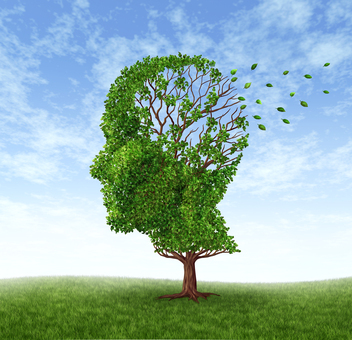Amnesia is memory loss or the inability to recall stored information.
Dissociative amnesia is quite different from ‘simple’ amnesia. Simple amnesia involves the loss of information from the memory which generally occurs as the result of injury to the brain or disease.
 With dissociative amnesia it is not memory loss as such, more a problem with the recalling of them, memories are in effect burried. This usually occurs after a time of great stress or psychological trauma.
With dissociative amnesia it is not memory loss as such, more a problem with the recalling of them, memories are in effect burried. This usually occurs after a time of great stress or psychological trauma.
Causes
As with other dissociative disorders, dissociative amnesia is usually brough on by severe stress, trauma or abuse. The fact that many people suffer trauma and do not go on to suffer a dissociative disorder implies there may also be a predispesition, this is further reinforced by the fact that many sufferers of dissosiative disorders may have a family member that is also a sufferer.
Symptoms
The main symptom of dissociative amnesia is the sudden inability to recall memories, past experiences or personal information. This usually happens after extreme stress.
Other symptoms that may be present include confusion and a sufferer may also suffer from depression and/or anxiety. People with dissociative amnesia may also experience mild to moderate depersonalisation and identity confusion.
These deeply buried memories may resurface on their own. This could occur spontaneously or after being triggered.
Treatment
Dissociative amnesia is treated in the same way as other types of dissociative disorders. Treatment usually includes psychotherapy and cognitive therapy to tackle the psychological trauma that may have caused the episode and to rea learn techniques to help order thoughts and feelings.
Again, as with other dissociative disorders, there is no specific medication, however you may be treated for other conditions such as depression that you may be experiencing as well as dissociative amnesia.
Family therapy can be offered to family members to help them to spot the symptoms and to better understand what is happening to their loved one.
Outlook
For many people with dissociative amnesia the outlook is good, although this depends on the individual. Remember that rapid intervention after a traumatic event can help. For most people memory returns with time, however in some cases these memories may never be recalled. The best thing you can do if you or a loved one are suffering, is seek the help of medical professionals and get psychological therapies started as soon as possible.





